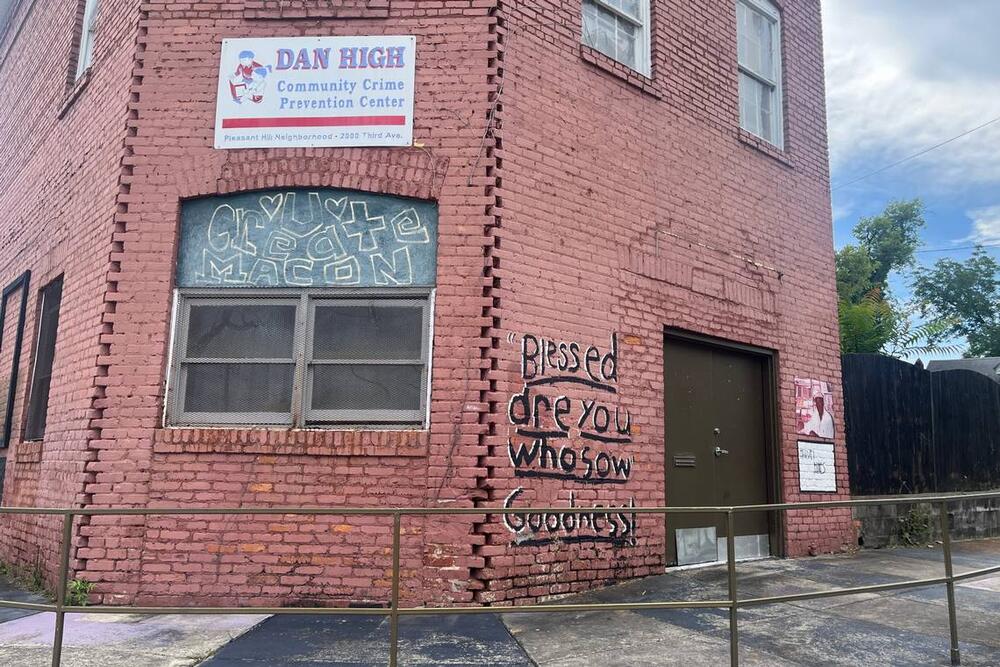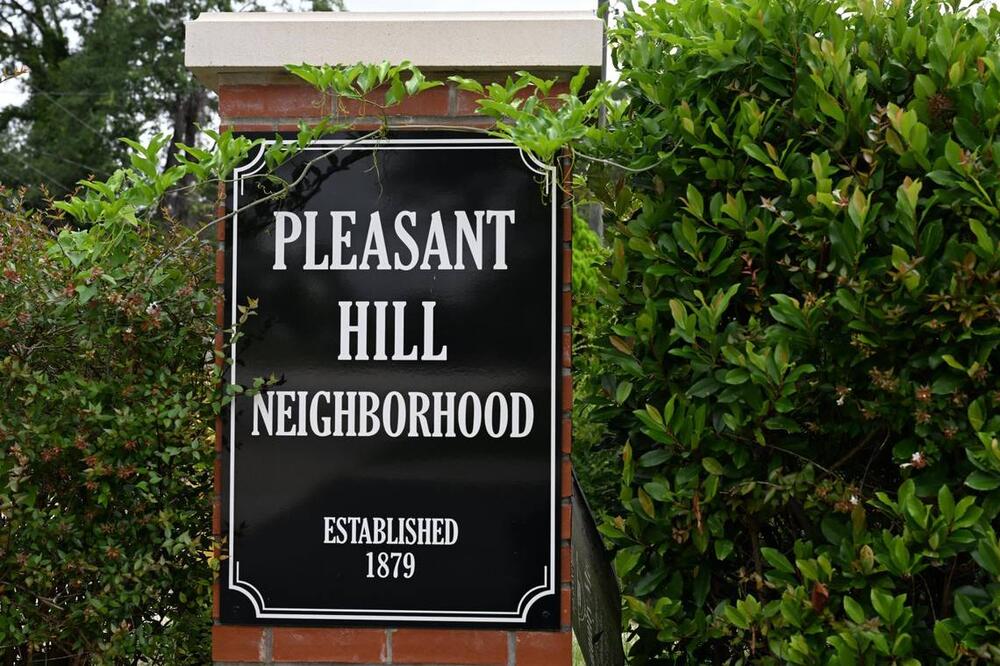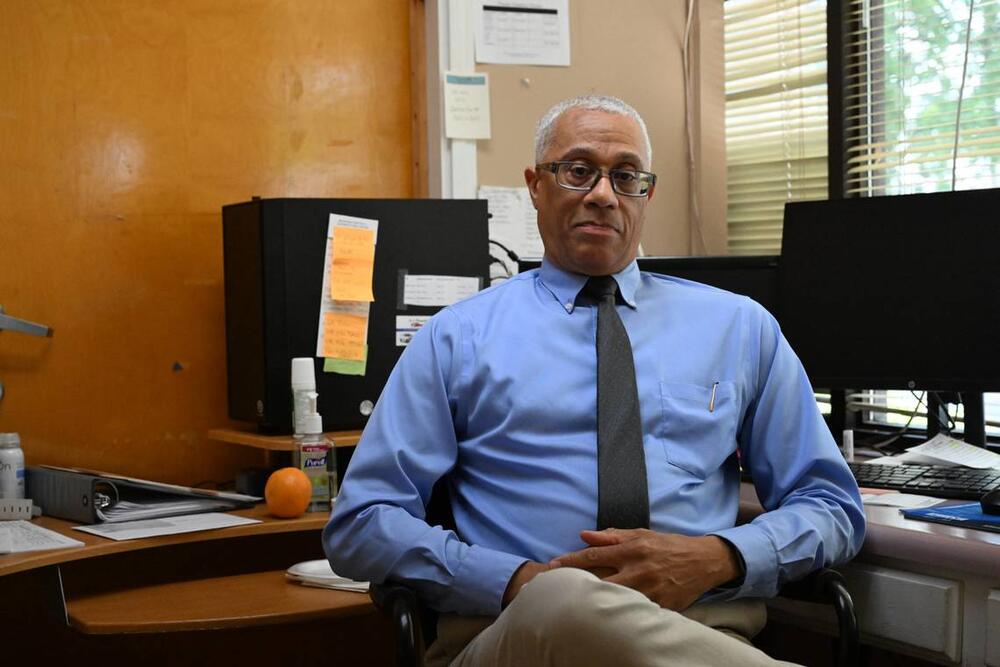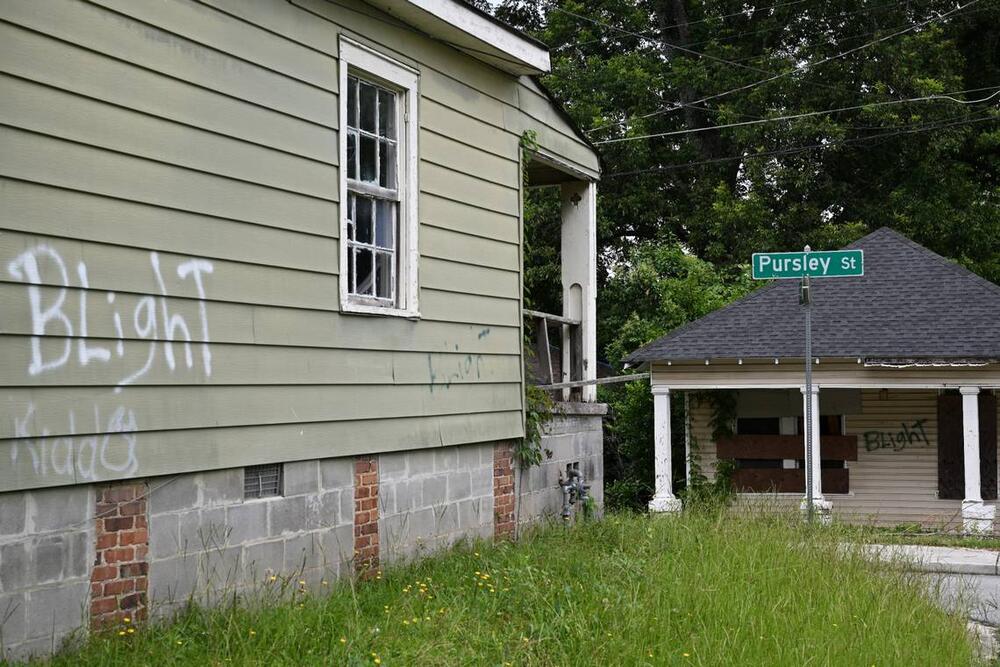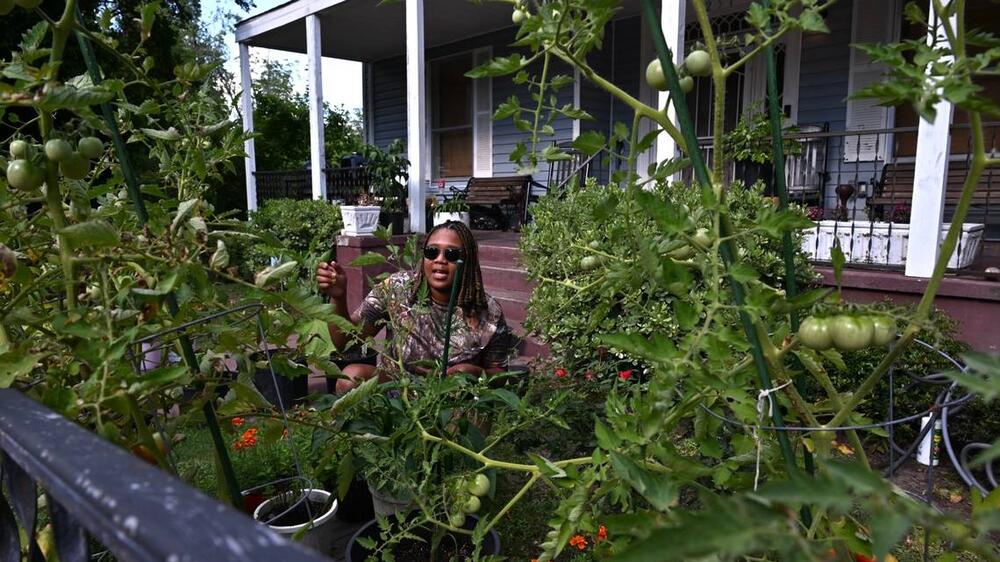
Caption
Andrea Moses, 36, sits in her front yard garden on Wednesday, July 2, 2025, on Ward Street in the Pleasant Hill neighborhood of Macon-Bibb County, Ga. Moses grows a variety of herbs and vegetables to eat including eggplants, tomatoes, bell peppers, habaneros, squash and basil.
Credit: Jesse Fraga / The Telegraph
